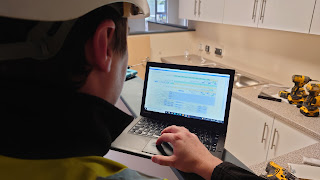How Does Construction Affect Our Environment?
The world is beginning to realise its impact on the environment. Carbon Footprint is a phrase uttered in almost all sectors, but none as much as our industry.
Do you know your impact?
"If nothing changes, nothing changes," there is no truer sentence. If your approach to building does not develop with the world, no positivity can come from it. You will always get people who do not believe they can make a difference, or even believe changes are necessary.
The construction industry employs roughly 2.7 million people! 2.7 million people who could make a difference to the carbon emissions! We are not only in one of the biggest industries, but we also have one of the largest proportions of self-employed people, roughly 36%.
How much carbon does the construction industry contribute?
With regard to air pollution, the construction industry is responsible for 23% of pollution and 32% of total landfill. They’re huge numbers to be responsible for, and it doesn’t take a genius to work out that these figures need to be reduced.
We are one of the biggest uses of non-renewable energy resources, consuming about 40% of stones, gravel, sand, and about 35% of wood per year. These are NON-RENEWABLES, don't forget. What we have to remember is although we are considered massive uses of materials, we are also a fast-paced industry when considering new technology. We have invested considerable sums of money to ensure that our effects are reduced. Nothing is perfect and it will take a while, but with everyone behind the new plans, there is no reason why we cannot turn it around.
Roughly, domestic buildings contribute 27% of carbon emissions, and non-domestic produce 18% of total carbon emissions, which amounts to a whopping 45% together. 72% of domestic emissions come from space heating and hot water.
What can be done?
As I said, huge investments are being made in research, materials, deliveries, techniques and construction methods. But it's up to us, as industry workers, to implement them. Yes, they can come at a cost, and sometimes we don’t have it in the budget, but this is where we need to change our thought process. The more we invest in our builds, the more they are potentially worth. We are not a small industry, so our impact has, and will always be huge, but it doesn't have to be negative.
We can use new technologies, including 3D printers and biodegradable materials, as well as better construction methods.
The staggering figure is that the construction industry in the UK accounts for 59% of total waste. That’s 59% of ALL waste in a year. Why do we create so much? If each of us can reduce our waste as individuals, this figure will drop dramatically.
What is it they say? All actions have consequences, and these are ours. Energy efficiency is becoming one of the most talked about subjects, which is fantastic. But talking alone won’t make the changes, we need actions. The UK government has invested significant time and money to ensure that we can move forward and start taking note of our carbon footprint.
If you’re building, think about what you can do. Is a Passivhaus for you? Perhaps you might consider living completely off-grid, growing your own veg and being totally sustainable? Whatever it is, even the smallest changes can have a positive impact on those figures. I think we can all agree that something needs to be done, because ‘if nothing changes, nothing changes’.




No comments:
Post a Comment